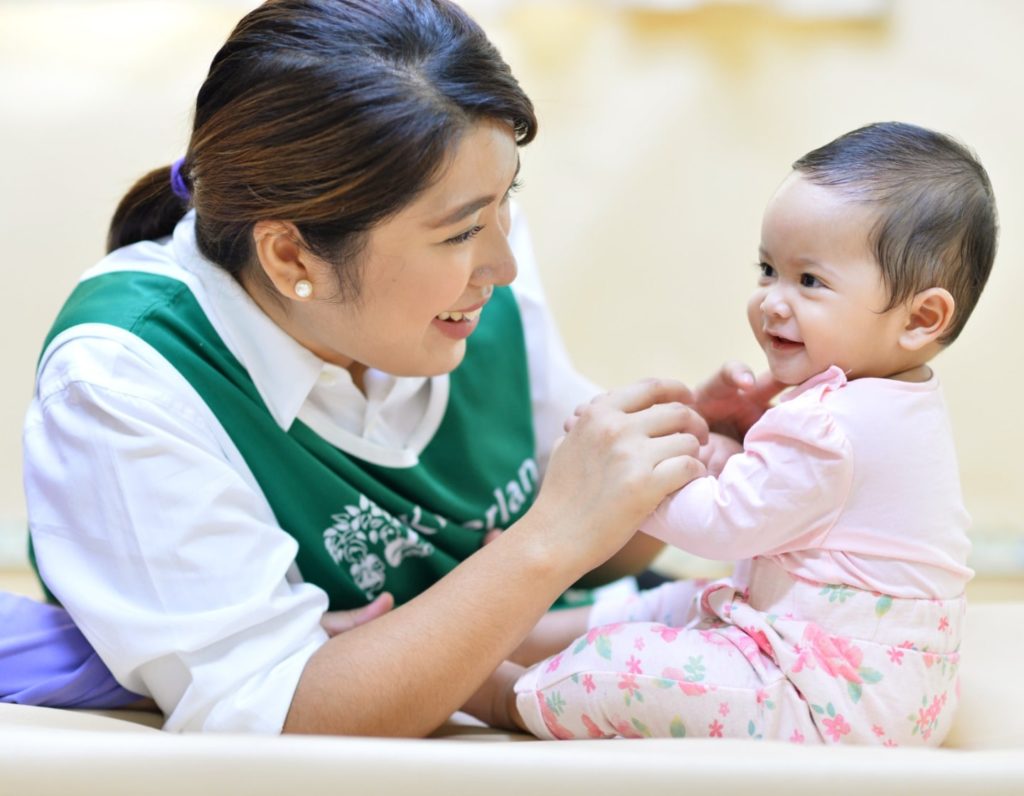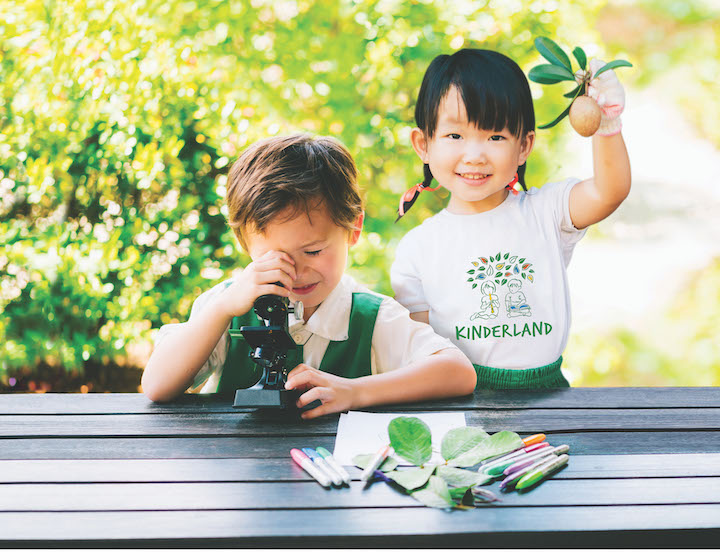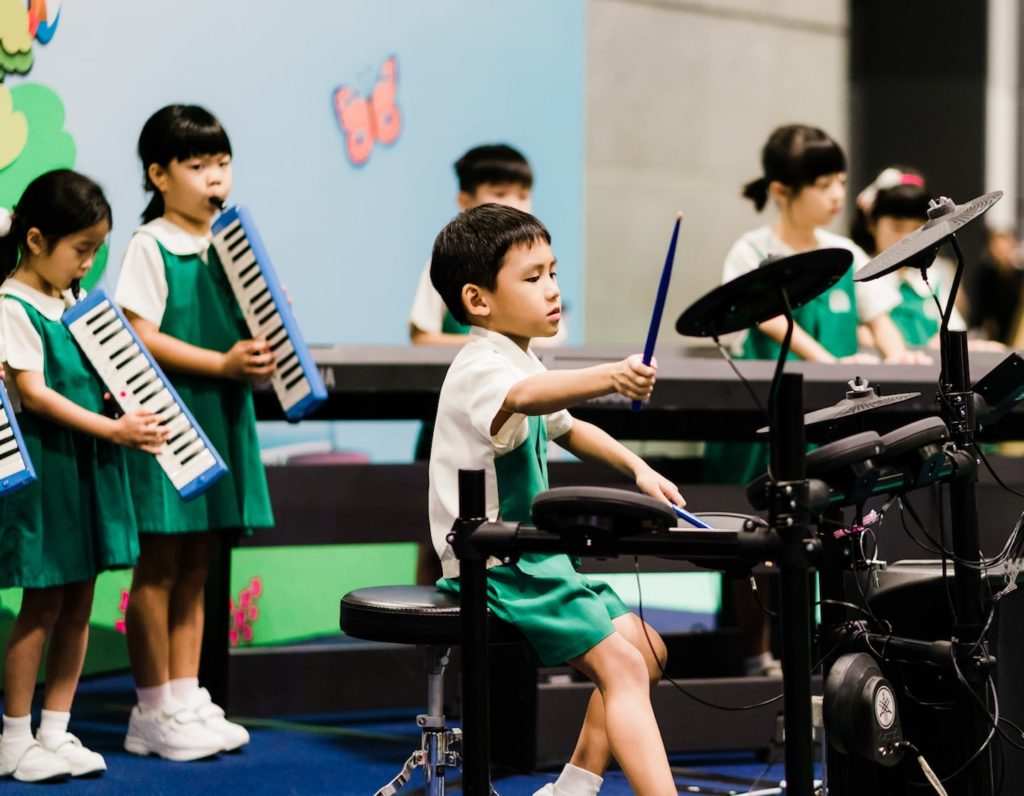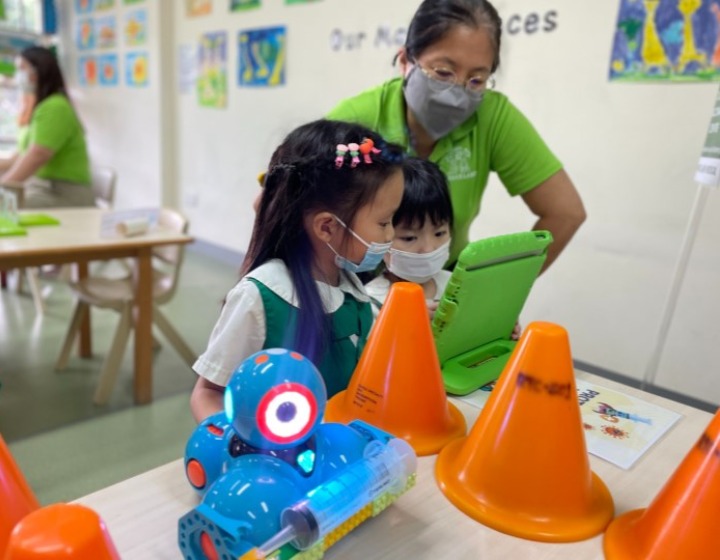
Kinderland says no! Get your little one into coding – the ultimate 21st-century skill that develops critical thinking and communication – with Kinderland Academy and Preschools’ S.T.R.E.A.M. programme!
Coding is an in-demand skill these days, and it’s not hard to find an enrichment centre or holiday camp offering coding classes to older kids. But is it better if kids get a headstart in coding earlier in life? This is exactly what you’ll find at Kinderland Academy and Preschools, where little ones aged 4 to 6 are exposed to coding lessons as part of their daily schedule. But unlike other coding classes, you won’t have to bear any extra cost, as the subject complements Kinderland’s existing S.T.R.E.A.M. programme – Science, Technology, Reading and wRiting, Engineering Arts and Mathematics. Dr Carol Loy, Director of Curriculum and Professional Development, sheds more light on how Kinderland is equipping children with 21st-century skills and coding awareness, so they can thrive in the digital age.
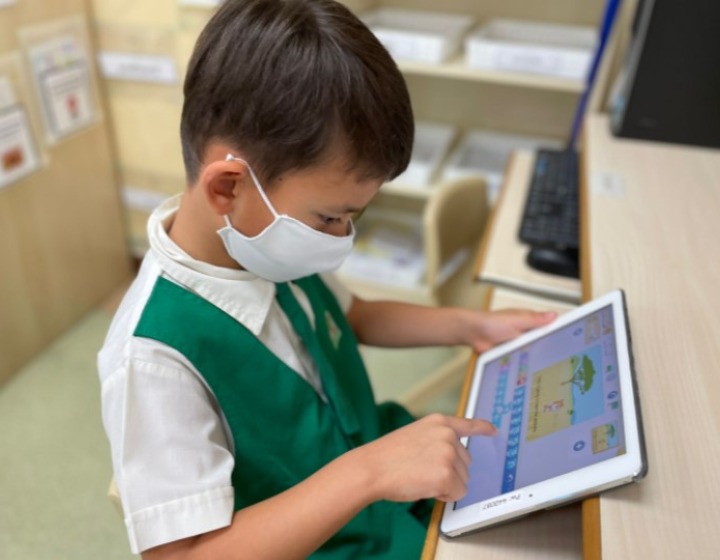
Why is coding part of the curriculum now?
Early exposure to coding helps nursery and kindergarten-level students develop computational thinking and reasoning skills that are essential for a technology-reliant future. Coding teaches children how to look at problems and approach them logically by allowing them to dissect problems into smaller parts and provide a sequence of instructions. Coding activities also help children to develop critical thinking, patterning ability, creativity, effective communication and the confidence and skills to manipulate basic tech gadgets. In addition, we hope they will further nurture our children’s interest in innovation and awareness of the benefits of I.T. These will help children problem-solve and prepare for a world filled with digital technology.
Does my child need to know how to read and write to code?
No, they don’t, as they’ll learn through play-based approaches to programme a robot to navigate a maze or move around objects. Advocates say children can pick up new skills and knowledge quickly, especially so through play – their first-hand experience through real-life application.
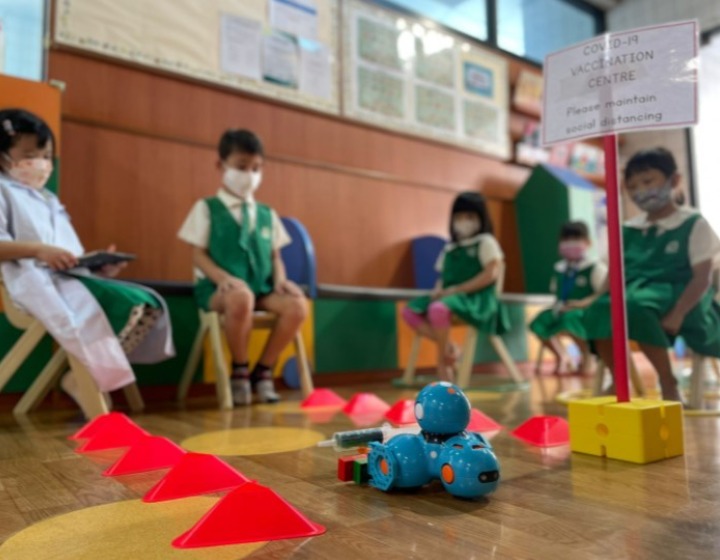
How does the school measure my child’s learning progress?
Kinderland uses several markers to measure a child’s progress, namely, gadget awareness, programming, coding, play behaviours, and the use of appropriate coding vocabulary. These are evaluated each semester and shared with parents to understand their child’s progress. Your tot is given plenty of room to innovate, so they can develop their creativity and potential.
Isn’t this too much screen time for children?
Kinderland introduces children to coding concepts in accordance with the World Health Organisation’s recommendation – children from ages 1 to 5 should spend no more than one hour on digital devices daily. Kinderland also uses age-appropriate introductory programmable gadgets and applications like Dash the Robot, ScratchJr, Beebot, Code-a-pillar, Code & Go Robot Mouse, and Smart Robot Albert to facilitate coding lessons. Students will learn how to manoeuvre and navigate the gadgets, and even gain confidence, as they achieve expected outcomes for their assigned challenges. Coding is part of Kinderland’s holistic curriculum, which includes plenty of outdoor play, physical movement and opportunities to develop social skills.
Want to know more about how Kinderland encourages children to code, learn and grow? Sign up for a Virtual Centre Tour at any of their centres to understand it better!
![]() Kinderland, multiple locations, [email protected], Tel: (+65) 6881 8818, www.kinderland.com.sg/openhouse
Kinderland, multiple locations, [email protected], Tel: (+65) 6881 8818, www.kinderland.com.sg/openhouse
Keep scrolling to learn more about Kinderland’s empowering approach for little learners!






 View All
View All




 View All
View All









 View All
View All


